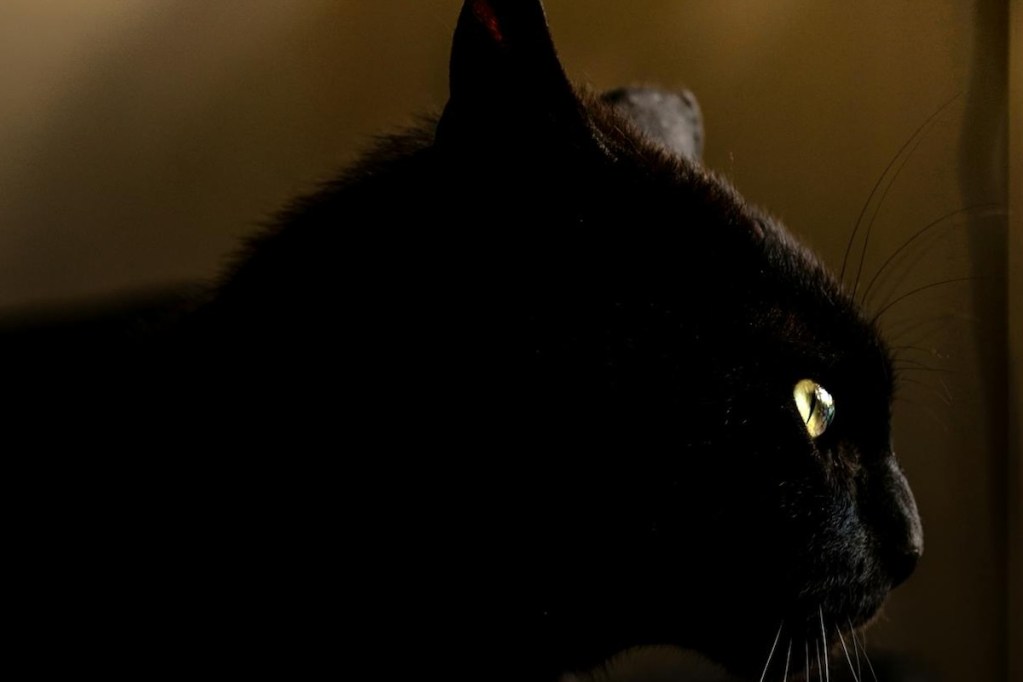
They say the eyes are the window to the soul. When you see your cat’s peepers in the dark, you notice something part cool, part creepy: They’re glowing. Does that mean your cat is glowing on the inside? Literally, no. Figuratively? Maybe.
Throughout history, societies have devised various theories to answer the question, “Why do cats’ eyes glow?” For instance, Ancient Egyptians theorized that kitties captured the sun’s glow in their eyes every night at sunset and protected it until sunrise. In Ancient Greece, people likened the light source in the eyes to a fire.
A cat’s eyes also hold clues to their overall health and well-being. Is a glow cause for concern? The short answer is no. Modern science has determined the biological reason why a cat’s eyes glow in dark settings.
Why do cats’ eyes glow?

Technically, the cat’s eyes aren’t glowing, but instead, they reflect light, enabling them to see better at night.
Let’s go ahead and back up. You may have heard that kitties are nocturnal — either from research or because you literally hear your cat meowing and batting items off tables and counters while you attempt to sleep like a human. All eyes, including ours, reflect light. However, since their eyes are often wide open in little to no light, cats, like other nocturnal creatures, need a way to adjust to “night vision” mode.
As a result, cats’ eyes have a structure called tapetum lucidum, which translates to a shining layer in Latin. The tapetum lucidum is a structure that acts like a mirror, reflects light, and causes your cat’s eyes to look like they’re glowing in the dark or shining (which is why the occurrence is sometimes called “eyeshine”).
Light passes through or around the retina and reaches the tapetum lucidum. Like a mirror, the tapetum lucidum bounces (or reflects) visible light through the retina again. In the process, cats gain more light available to their photoreceptors, and the kitty can see during their waking hours in the dark.
Cats have better vision in low lighting than humans, who don’t have a tapetum lucidum. (Wondering why your eyes look red in photos? You’re not seeing reflected light but red blood vessels. When you shine a flashlight in your eyes — which we don’t recommend — you won’t notice a cat-like “glow.”)
The bottom line

Cats’ eyes don’t glow in the dark, but they look like they do. While there have been many interesting theories about why this phenomenon happens, including that cats were safe keepers of the sun, we now know the roots are biological.
Cats are nocturnal and must reflect light to see better in the dark. Their eye structure accomplishes this necessity while also giving off the appearance that a cat has glow-in-the-dark peepers. Speak to a vet if you’re concerned about your cat’s eye health. “Glowing” eyes should not be confused with other issues, like severe redness or cataracts, which could be a sign of infection or worsening vision.



